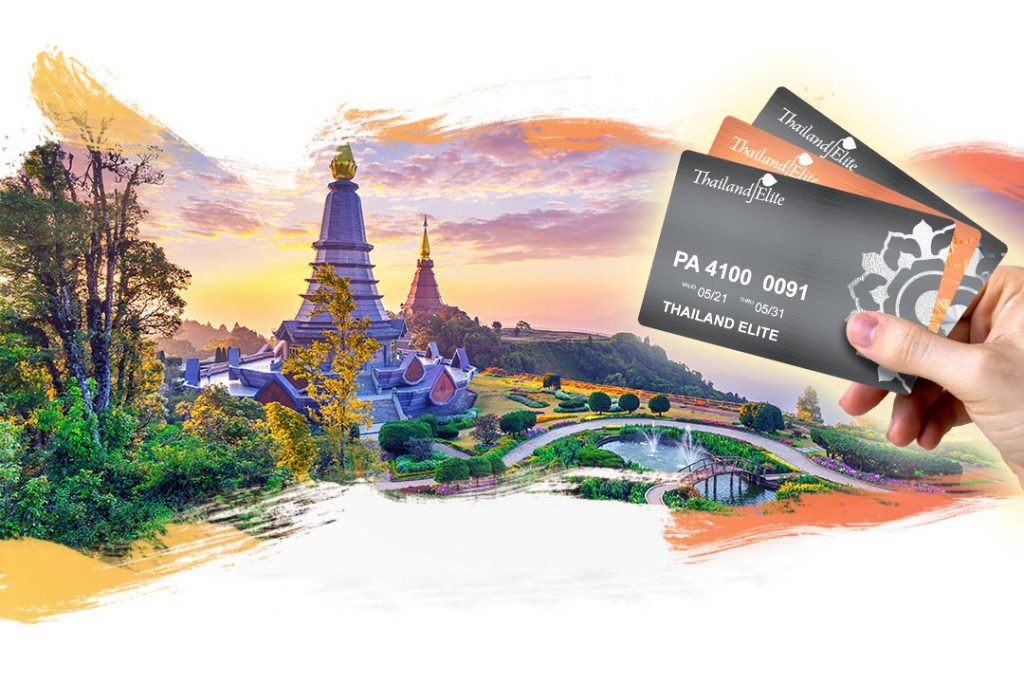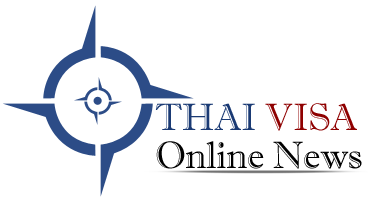Home

About Thai Visa News
Created in 2011, ThaiVisa News provides immigration information, immigration news, and travel guide and updates for people wishing to visit Thailand. The gateway to detailed information and requirements about Thai Visa application, whether researching travel opportunities, seeking information on travel restrictions, or looking for advice and assistance on how to move into Thailand. The comprehensive information of this website means that all answers to your immigration questions are at your fingertips.
Latest News
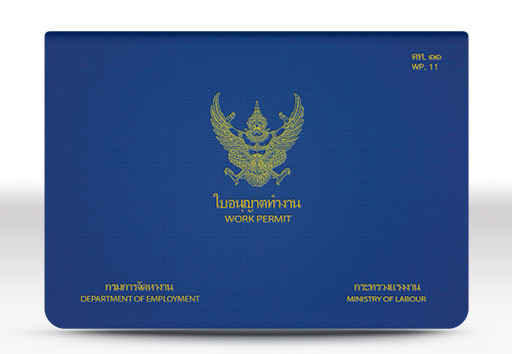
Many foreigners enter Thailand for short business trips for a few days whether for the purpose of negotiating an agreement, to attend or to be a speaker at a conference, to provide technical support, or to source a local supplier, unaware that the purpose of their visit requires a work permit in accordance with Thai law.
The Thai Labor law definition of “work" is very broad that it almost cover all of the activities by foreigners in Thailand doing business or work-related. Work is defined as any activity whereby one exerts energy or uses knowledge. Whether or not this business or work-related activity is in consideration for wages or other benefits, temporarily or permanently, is deemed as work under the law.
Applying for a proper work permit is not suitable for people who comes to Thailand for short business trips. The normal work permits are valid for three, six or 12 months. However, the Alien Working Act contains a provision that allows foreigners intending to stay in the Kingdom for a short period of time to notify the necessity and urgency of their work to the Department of Employment instead of applying for an ordinary work permit.
The advantage of this notification is that it is very quick to process. It will take a day or few days to process with a fee of 800 baht. The requirement is much lesser than the normal work permit. It only requires a non-immigrant business visa, letter from the Thai trading partner and the company registration. The medical certificate, required registered capitalization and number of Thai employees won't be required for the application.
This option is only available to those who come to perform “necessary and urgent” work-related activities. Furthermore the foreign person will be allowed to stay to perform such activity or work up to 15 days per entry only, inclusive of weekends and public holidays.
It seems a lot of trouble to do this for a short visit, but the law enforcement has become more strict against foreigners who work without a work permit. This has been closely monitored by authorities so it is better to be on the safe side.
To apply for a work permit in Thailand, please check this page.
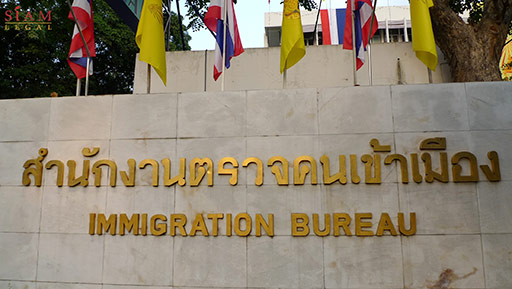
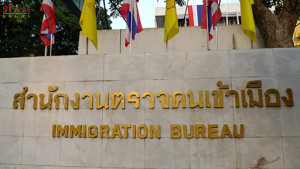
Over the last couple of years, Thai immigration rules have been the recurrent content of many news site and different forums in Thailand. Every bit of discussion boiling down to one thing - changes in the Thai immigration rules. Truth is, we cannot expect rules and policies to be the same years after years. And this rings true even before the military took over the Thai government in 2014. As it turned out, we’ve seen a lot of head-scratching, especially among foreigners who periodically travel in and out of Thailand.
Confusion over the process
Foreigners are notified of changes in Thai visa rules well in advance. The confusion comes over the subject of getting an extension inside Thailand. It is not uncommon for a foreigner to enter Thailand then make a decision to extend his stay for couple more weeks or months. They are then looking for options of what to do without leaving Thailand.
Given the inconsistency of Thai immigration policy, we can understand why many foreigners in Thailand are at a loss. This article aims to shed some light on questions frequently asked by those who call our office.
Options to stay inside Thailand on an extended duration
Clause 2 of Order No. 327/2557 of the Royal Thai Police (June 30, 2014) describes when a foreigner can apply for an extension by paying the fee of THB 1,900 at the immigration office in Thailand.
- Extensions for visa exempt scheme and tourist visa holders.
Nationals from countries who enter Thailand under a 30-day visa exemption can get an extension of another 30 days. This gives them the option to stay inside Thailand for up to 60 days in all without having to leave the country. Holders of Vietnamese and Laotian passports, however, can only get a 7 days extension. Note also that this option is not available to those who are on a visa-on-arrival.
Holders of a Thai tourist visa, on the other hand, can get an extension of 30 days, regardless of their nationality, by paying the extension fee at any immigration offices in Thailand.
- Extension for foreigners who are legally married to a Thai national
A foreigner of any nationality, for as long as he is legally married to a Thai citizen, can be granted for one time an extension of no more than 60 days. This is applicable in the case of a foreigner who entered Thailand on a tourist visa or a 30-day visa exempt stamp.
- Visa extension for up to one year
A foreigner can extend his visa every year and with validity of extension for up to one year under circumstances when he meets the criteria for consideration. This option is offered to those who have recently been granted a non-Immigrant visa and are in the cases under any of the categories below:
- Business owners or investors
- Employees of Thai companies
- Retirees
- Spouses of a Thai citizen
- Conductors of training or research in a university or research institute
- Family members of a Thai citizen or an alien who are permitted a temporary stay in Thailand
- Students
- Missionaries
Another concern is the subject of filing for a change of visa. This can be tricky since regulations are not the same for all immigration offices. There are also only few circumstances when an application for change of visa can be done without having to leave Thailand. While anyone can take the risk of doing the process on their own, it is advised to seek help from firms who understand the process and ensure that the application is properly prepared and filed.


In the 2014 Expat Explorer Survey of over 9300 people between the ages of 35-54, Thailand emerged as the “best destination for expats looking for an improved lifestyle at a low cost.” Thailand is the third favorite over all destinations in Asia and seventh in the world. Sixty-nine percent of expats say that they have a higher quality of life and seventy-two percent say that they have more disposable income in Thailand than from their home country.
It is not surprising that many foreign nationals want to move to Thailand. However most non-immigrant visas to Thailand are for a limited period of 30-90 days with a limited numbers of extensions. For longer term visas, foreign nationals generally have to fit into certain visa categories. The most common are employment visas, family visas, and retirement visas.
For information on how to obtain a Thai retirement visa, visit thaiembassy.com's Retire in Thailand page.
An overlooked visa is the investment visa. According to an Order of the Immigration Bureau 237/2557 which became effective on August 29, 2014, a foreign national will be granted a non-immigrant one year visa if the foreign national has transferred minimum of 10 million baht into Thailand and purchased a condo for no less than 10 million baht. If the purchase price of the condo is less than 10 million baht, the foreign national can purchase Thai government bonds to make up the difference.
Requirements to Purchase Condo
A foreign national can purchase part of a condominium as long as the project is not more than 49% foreign owned. The foreign national has to transfer funds used for the purchase of the condominium into Thailand from outside Thailand. The remittance must be recorded on a Foreign Exchange Transaction Form and state the purpose for the transfer. The buyer will have to place a deposit and sign a contract for purchase for the condo unit.
Requirements for Investment Visa
After purchasing the condo, the foreign national can apply for an extension of their investment visa. The minimum requirements for the foreign national obtaining a one year investment visa is the following:
- Foreign National currently in Thailand on a granted non-immigrant visa
- Evidence of transferring a minimum of 10 million baht into Thailand
- Evidence of the total investment must be no less than 10 million baht
- Evidence of investing in the purchase of a condominium unit that has been issued by a relevant agency or government office
- Evidence of the purchase of investing in a form of fixed deposit with a Thai bank
- Evidence of investing in the purchase of government or state enterprise bonds
- Evidence of the total investment must be no less than 10 million baht
This article provides a general overview of the process for investment visas. When purchasing property or applying for the investment visa, it is recommended that foreign nationals seek the assistance of experienced professionals. Business is generally formalized in Thai. Contracts, government forms, and due diligence requires the use of Thai professionals to assure that non-Thai nationals complete the process without delay or being defrauded.
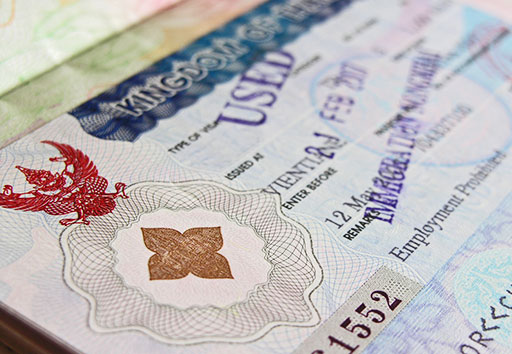
There is a large number of expats working and starting businesses in Thailand. Thailand is a central hub in Southeast Asia and a leading developing economy in the region. Bangkok is the regional headquarters to many multinational corporations. With modern conveniences such as mass transit, high speed internet, and international shopping and dining, foreign expats would have no trouble experiencing a full, comfortable, and modern life in Bangkok.
It is not surprising that the most requested information that our office receives are questions on working and starting a business in Thailand. Foreigners who want to work, start a business, or invest in a business in Thailand need to obtain a Non Immigrant B Visa. The Non Immigrant B Visa is segregated into various types of activities.
Business and Employment – Non Immigrant Visa “B”
A foreigner who wishes to conduct business in Thailand must submit evidence of the applicant’s company and their position in the business. The applicant must document the financial status company and the ability to support the applicant life in Thailand. If the applicant is not the owner of the business, the applicant must submit similar documents from the employer but must also review ministry regulations to ensure that work permits are available for their occupation. Some occupations require licensure or are restricted to Thai nationals. Those on Non Immigrant “B” visas are not allowed to work until they have received a work permit from the ministry of commerce.
Investment – Non Immigrant Visa “B-A”
A Non-Immigrant “B-A” (Business Approved Visa) is provided to applicants who are associated with companies that will invest or conduct business in Thailand. This type of visa can be applied on behalf of the applicant at the Office of Immigration Bureau. Once the application has been approved, the Immigration Bureau will inform the local Thai Embassy or Consulate.
Board of Investments – Non Immigrant “IB”
Investors and experts are granted privileges under the Investment Promotion Act of 1977 to stay in Thailand for a temporary basis for investments and business operations in promoted activities. The Board of Investment of Thailand established a One-Stop Service Center for Visas and Work Permits as part of their investment promotion package. Companies that start business operations in their targeted industries are issued Non Immigrant “IB” visas.
Teaching – Non Immigrant Visa “B”
Foreign nationals who are employed as school teachers at levels before the University level can apply for a Teaching Non Immigrant “B” Visa. In order to be granted a teaching license and work permit, the Ministry of Education usually requires a minimum of a Bachelor’s Degree and a Teaching English Certificate. The applicant is required to submit the applicant’s educational certificate, criminal clearance, invitation letter from Thai educational institution, and an employment contract from the employing school.
Siam Legal is experienced and skilled in submitting Thai Business Visas and Work Permits applications. Please contact our office if you have questions about the process. We will advise you of your eligibility of obtaining a Non Immigrant “B” Visa in Thailand.
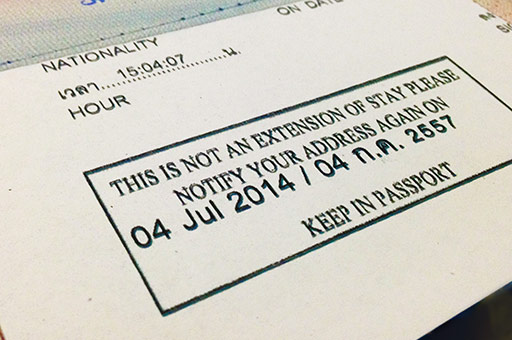
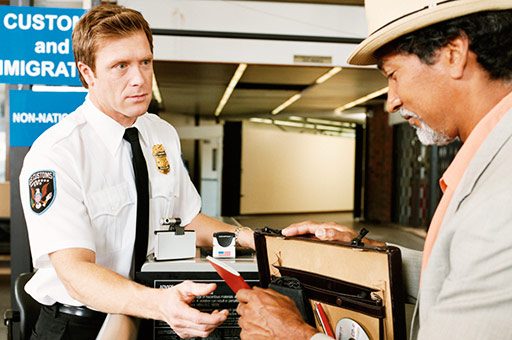
Most foreign nationals who wish to enter Thailand are required to obtain a visa prior to entering the country. However, there are some foreign nationals who are prohibited from entering the country. The Immigration Act of Thailand (1979), Chapter 2 "Entering and Departing the Kingdom" provides a list of the types of foreign nationals who are prohibited from entering Thailand. The following foreign nationals are prohibited from entering Thailand.
- Aliens who have no genuine passport or valid document in lieu of passport cannot enter Thailand except for special circumstances.
- Aliens who do not have any way of supporting themselves while in Thailand.
- Aliens who entered Thailand to be employed as an unskilled or untrained laborer, or work in violation of the work permit laws.
- Aliens who are mentally unstable or have a communicable disease as described by Ministerial Regulations.
- Aliens who have not been vaccinated against smallpox or any other disease and having refused to be vaccinated by an immigration doctor.
- Aliens who have been imprisoned by any Thai or foreign court except for petty offense, negligence, or exemption provided by ministerial regulation.
- Aliens who are a possible danger to the public, a public nuisance, a danger to the security or peace of the nation, or under warrant for arrest by officials of a foreign government.
- Aliens who are believed to be involved in prostitution, human trafficking, drug smuggling, or other types of smuggling that is contrary to public morality.
- Aliens who do not have the required money or bond as required by ministry regulations.
- Alien who have been prohibited entry by the Minister for reason of safeguarding the public peace, culture, morality, or welfare.
- Aliens who have previously been deported or their right of stay has been revoked by the government of Thailand or another foreign country unless exempted by the Minister.
If a competent government official discovers a forbidden foreign national inside of Thailand as described on the forbidden list, the government official has the authority to issue a written notification for them to leave. The foreign national can appeal the decision to the Minister. The order of the Minister is final and cannot be appealed.
Visit ThaiEmbassy.com to apply for a visa to Thailand.Thai Elite Visa
Thailand Elite visa is a special visa aimed for high networth businessmen, digital nomads, retirees, investors, high income individuals, and families looking to move in to Thailand. The Elite member or card holder has special privileges such as VIP treatment at the airport, exclusive spa and golf courses, special discount at major department stores and shopping malls, elite personal assistance, and many more. To learn more if Thailand Elite Visa is the most suitable long term visa for you, just click the link below.
